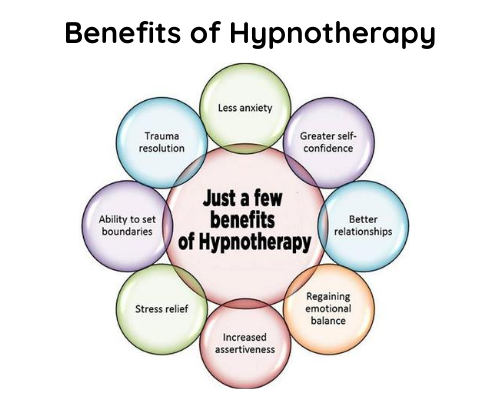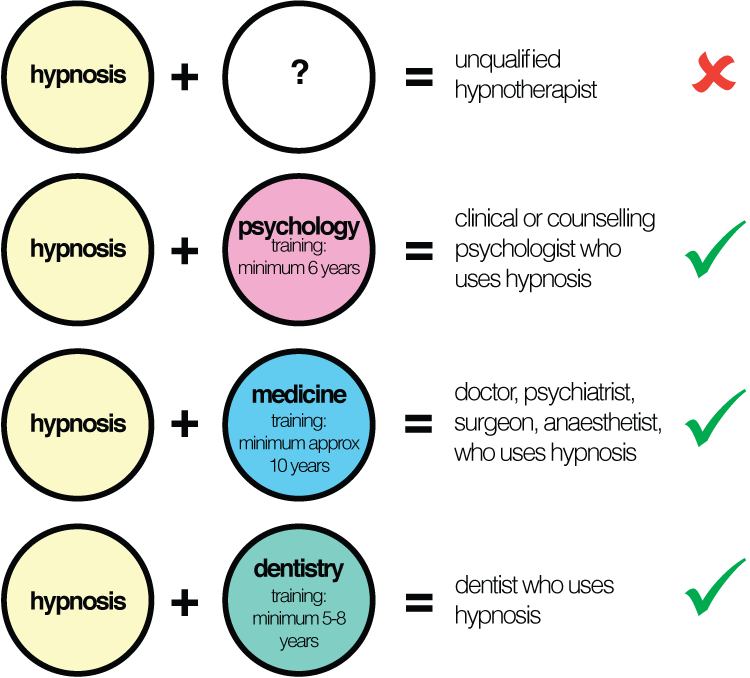Hypnotherapy is used to treat a wide variety of conditions, both physical and mental, and has been shown to be effective in many cases. In this article, we will explore the concept of hypnotherapy, look at how it is applied, and evaluate its benefits and limitations.
Contents
Understanding Hypnotherapy

The American Psychological Association defines hypnosis as “a cooperative interaction in which the participant responds to the suggestions of the hypnotist.”
The term hypnosis comes from the Greek word Hypnos, which means sleep. Hypnotherapy is a form of therapy that uses hypnosis to induce a state of relaxation and focus in order to treat various conditions.
Hypnosis Vs. Hypnotherapy
It is important to understand the difference between hypnosis and hypnotherapy.
- Hypnosis is a state of focused attention and heightened suggestibility,
- While hypnotherapy is the use of hypnosis to treat a variety of conditions.
While anyone can be hypnotized, not everyone is responsive to suggestions. In order for hypnotherapy to be effective, the therapist must be able to induce a state of hypnosis in the client.
Theory Behind Hypnotherapy
The history of hypnosis is long and varied, with roots in both Eastern and Western cultures. Eastern traditions often view hypnosis as a form of meditation, while Western cultures have typically viewed it as a form of sleep or an altered state of consciousness.
The most common theory behind hypnotherapy is that it works by accessing the subconscious mind, where memories and emotions reside in. By bypassing the conscious mind, which is often full of critical thinking and judgment, the therapist can more easily tap into the subconscious and make changes.
Action Mechanism
The exact mechanism by which hypnotherapy works is not yet clear. However, the general consensus is that it works by accessing the subconscious mind; where memories and emotions reside in.
By bypassing the critical thinking of the prefrontal cortex and accessing the emotions stored in the limbic system, the therapist can more easily tap into the subconscious and make changes. Thus, the therapist can more easily make changes in the patient’s thoughts and behaviors.
The therapist will typically use verbal cues and suggestions to help the patient relax and enter into a trance-like state. Once the patient is in this state, the therapist can then begin to work on various issues, such as helping them to overcome fears or phobias, changing negative thought patterns, and managing pain.
Brain Activity During Hypnosis
It is well established that there are changes in brain activity during hypnosis.
Some of the most well-known changes include:
- Decreased activity in the prefrontal cortex, is responsible for critical thinking and judgment.
- Increased activity in the limbic system, which is responsible for emotions and memory.
- Changes in the autonomic nervous system, which controls the body’s fight-or-flight response.
These changes in brain activity help to explain why hypnosis can be such an effective treatment for conditions like pain, anxiety, and depression.
History, And Development
Hypnosis has been used for centuries, in a variety of cultures, for a variety of purposes. It is one of the oldest and most well-known forms of psychotherapy, with a history dating back more than two thousand years.
- It was first formalized as a medical treatment in the early 1800s by Franz Mesmer, a German physician who used it to treat patients with “animal magnetism.”
- In the late 1800s and early 1900s, hypnosis was used extensively by Sigmund Freud and other psychoanalysis pioneers. However, it fell out of favor in the mid-1900s, due in part to a lack of scientific evidence supporting its efficacy.
- In the past few decades, however, there has been a resurgence of interest in hypnosis as a treatment for a variety of conditions. This has led to a greater understanding of how it works and how it can be used effectively.
Unfolding Hypnotherapy

Hypnotherapy is a type of psychotherapy that uses hypnosis as its primary tool. It is one of the oldest and most well-known forms of psychotherapy, with a history dating back more than two thousand years.
Who Can It Help
Hypnotherapy can help people with a wide variety of issues.
- It is often used to treat pain, anxiety, and depression.
- It can also be used to treat addictions, eating disorders, sleep disorders, and much more.
How Does It Work
Hypnotherapy is not a sleep therapy; rather, it is a way of using the power of suggestion to help people change their thoughts and behaviors. The therapist will usually first help the patient to relax and then give them positive suggestions that they can focus on. Thus, the goal of hypnotherapy is to help the patient change their thoughts and behaviors in order to improve their overall health and well-being.
What To Expect
The therapist will usually work with the patient for a short period of time, typically 30-60 minutes. And will then give them suggestions to focus on after the session is over. For example:
- A therapist might suggest to a patient who is afraid of flying that they are safe and that they will feel relaxed and comfortable during the flight.
- The therapist may also give suggestions for managing pain, such as suggesting that the pain is manageable and that the patient can cope with it.
Techniques Used In Hypnotherapy
There are a variety of techniques that can be helpful in hypnotherapy:
- The most common technique is suggestive therapy, in which the therapist makes suggestions to the patient so as to help them achieve their desired state;
- Other techniques may include regression therapy, in which the therapist helps the patient to access and resolve past traumas;
- Abreaction, in which the therapist helps the patient to release emotions that are arising out of their issue;
- Visualization, in which the therapist helps the patient to visualize themselves achieving their desired state;
- Progressive relaxation, in which the patient learns how to relax their body and mind.
Evaluating Hypnotherapy
Hypnotherapy is a safe and effective treatment for a wide variety of conditions, both physical and mental. It can be used to treat pain, anxiety, depression, addictions, eating disorders, sleep disorders, and much more.
However, as with any treatment, there are some risks and side effects that one should consider. The most common side effect of hypnotherapy is dizziness or lightheadedness. This is typically due to the relaxation of the body and one can resolve by simply sitting or lying down.
Other potential side effects include:
- Headaches
- Anxiety
- Nausea
- Sleepiness
There are a number of ways to evaluate the effectiveness of hypnotherapy.
- One common method is to ask the patient to rate their symptoms on a scale of 0-100 before and after the treatment.
- Another method is to have the patient keep a journal of their thoughts and behaviors before and after the treatment.
The therapist will also typically ask the patient about their goals for treatment and whether or not they feel like they have been met.
Benefits of Hypnotherapy

- Hypnotherapy can provide a number of benefits, including relief from pain, anxiety, and depression.
- It can also help to treat addictions, eating disorders, sleep disorders, and much more.
Common Concerns, And Limitations
There are a few common concerns and limitations associated with hypnotherapy.
- First, hypnotherapy can be a long and costly process.
- Second, it is important to find a qualified and experienced therapist.
- Finally, hypnotherapy is not appropriate for everyone. It is generally not effective for people with mental health disorders, such as schizophrenia.
Why Consider It
If you are struggling with pain, anxiety, or depression, hypnotherapy may be a good option for you. It is safe, effective, and has a number of benefits.
Finding a Hypnotherapist

How To Find One
- The best way to find a qualified and experienced hypnotherapist is to ask around for recommendations.
- You can also search online or in your local Yellow Pages.
What To Look Out For
There are a few things to keep in mind when searching for a hypnotherapist.
- First, make sure that the therapist is certified by the American Society of Clinical Hypnosis (ASCH).
- Second, check to see if the therapist has any complaints or disciplinary actions against them.
- Third, ask the therapist about their experience treating your specific condition.
- Fourth, make sure that you feel comfortable with the therapist.
Red Flags Not To Avoid
There are a few red flags to avoid when searching for a hypnotherapist.
- First, avoid therapists who guarantee results.
- Second, avoid therapists who use high-pressure sales tactics.
- Third, be wary of therapists who make grandiose claims about the effectiveness of hypnosis.
- Finally, avoid therapists who pressure you into signing up for more sessions than you feel comfortable with.
Pursuing Training In Hypnotherapy
If you have an interest in pursuing training in hypnotherapy, there are a few things to keep in mind.
- First, make sure that the program has accreditation by the ASCH.
- Second, check to see if the program has any complaints or disciplinary actions against them.
- Third, ask about the program’s curriculum and make sure it is a good fit for you.
- Fourth, make sure that you feel comfortable with the program and the instructors.
Hearing From Experts

“Hypnotherapy is a safe and effective treatment for a wide variety of conditions, both physical and mental. It has been shown to be an effective treatment for pain, anxiety, and depression.” -Dr. John Grohol, Psych Central
“Hypnotherapy is a valuable tool that can be used to treat a wide variety of conditions. It is safe, effective, and has a number of benefits.” -Dr. Josh Axe, DrAxe.com
Case Study
“I was struggling with pain, anxiety, and depression. So, I decided to try hypnotherapy, and it was a great decision. Then, I found a qualified therapist who helped me to resolve my past traumas and learn how to relax my body and mind. I highly recommend it.” -Sara, 36
Resources
If you have an interest in pursuing training in hypnotherapy, the following resources may be helpful:
- The American Psychological Association (APA)
- The American Society of Clinical Hypnosis (ASCH)
- The National Association of Cognitive-Behavioral Therapists (CBT)
- The National Board for Certified Clinical Hypnotherapists (NBCCH)
Conclusion
Hypnotherapy is a safe and effective treatment for a wide variety of conditions. It has a number of benefits, including reducing pain, anxiety, and depression. If you have an interest in pursuing training in hypnotherapy, make sure to find a qualified and experienced therapist. There are a few things to keep in mind when searching for a hypnotherapist, such as certification, experience, and comfort level. Hypnotherapy is a valuable tool that can be effective to improve your overall health and well-being.
A Word From Therapy Mantra
Your mental health — Your psychological, emotional, and social well-being — has an impact on every aspect of your life. Positive mental health essentially allows you to effectively deal with life’s everyday challenges.
At TherapyMantra, we have a team of therapists who provide affordable online therapy to assist you with issues such as depression, anxiety, stress, workplace Issues, addiction, relationship, OCD, LGBTQ, and PTSD. You can book a free therapy or download our free Android or iOS app.


